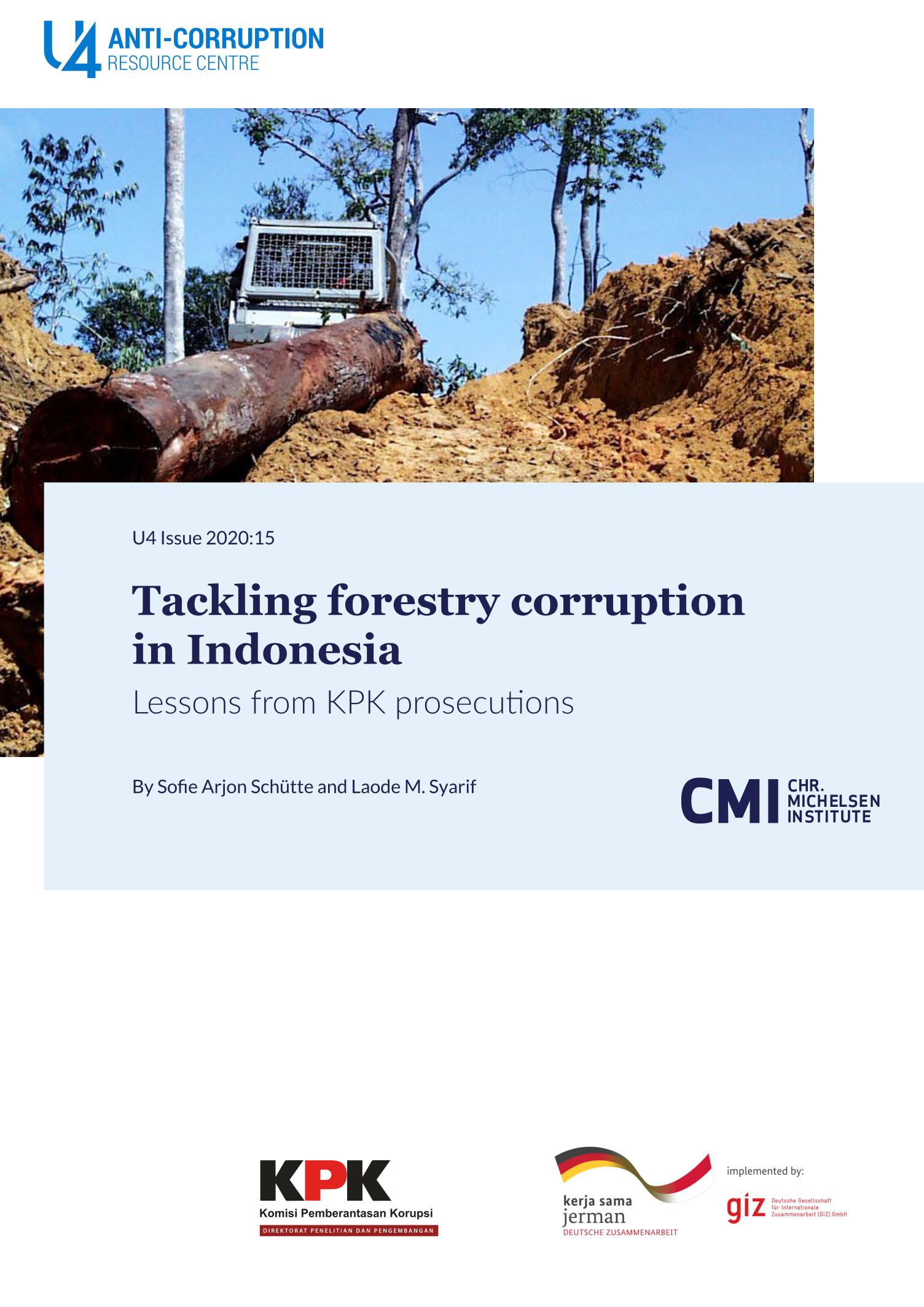Main points
- By 2016, the Indonesian Corruption Eradication Commission (KPK) had brought 30 defendants to court for abuse of power and/or bribery in the issuance of forestry licences in six cases spanning four of Indonesia’s 34 provinces. All defendants were found guilty on at least one charge. Over the next four years, the KPK only prosecuted one additional case related to the forestry sector, despite the sector’s vulnerability to corruption and its importance to the Indonesian economy and people’s livelihoods.
- The average and median sentence of imprisonment was about five years, but only a small fraction of the established losses to the state and of benefits resulting from fraudulent licensing was recovered. No money was recovered to compensate for environmental damage.
- The companies that benefited from these corrupt acts have faced no legal consequences. Companies that have encouraged or condoned corrupt behaviour should be held accountable, and the licences they obtained illegally should be revoked.
- The KPK should set an innovative precedent for Indonesia’s law enforcement institutions by embracing a courageous and coherent strategy of prevention and enforcement in the natural resources sector. Such an approach must be enabled by a robust information- and knowledge-sharing infrastructure.
- The verdicts of Indonesian courts, including the anti-corruption courts, have always been difficult to access, even by the justice sector institutions themselves. Only the KPK enforcement department seems to have a full set of all verdicts in its cases. These are simple image scans of the original verdicts and cannot be digitally searched. All verdicts should be made publicly available in OCR (optical character recognition) format to allow for systematic and efficient analysis.
